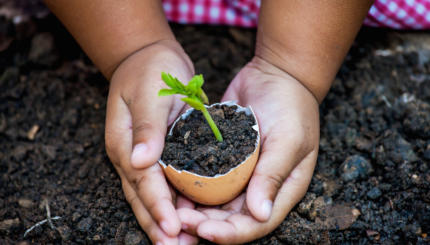Reprinted with permission from The JPS Guide to American Jewish History (Jewish Publication Society).
The early 19th-century Jews of the United States were less than cohesive in presenting a uniform national image. Divided by geographic, linguistic, and cultural origins, their lives revolved around family and local community. It took events thousands of miles away to bring the nascent national Jewish community to life.
The Damascus Blood Libel
The mysterious disappearance of a Catholic monk in Syria in 1840 reawakened the medieval anti-Jewish blood libel. A number of Jews were arrested and tortured. People around the world were shocked. In America, Jewish communities organized public meetings and sent petitions of protest to President Van Buren, who issued an official denunciation of the affair. This marked the first time that the Jews of the United States interested themselves and enlisted the interest of the government in the cause of suffering Jews in another part of the world.
When an American Jewish merchant was expelled from Switzerland in 1857, Isaac Leeser and Isaac M. Wise joined forces. Using their respective newspapers, they organized Jewish delegations from around the country to go to Washington and lobby government officials. American Jews discovered that their voices did matter and that a united front gained them access to the national centers of political power.

Help us keep Jewish knowledge accessible to millions of people around the world.
Your donation to My Jewish Learning fuels endless journeys of Jewish discovery. With your help, My Jewish Learning can continue to provide nonstop opportunities for learning, connection and growth.

Edgardo Mortara as an adult and Augustine Order priest (right) and his mother
The Mortara Affair
The next year, another anti-Jewish act, this time in Italy, galvanized the world Jewish community. A young child, Edgar Mortara, secretly baptized by his devout Catholic nurse as an infant, was kidnapped by Vatican agents. His involuntary baptism was enough to make the little boy a Catholic in the eyes of the Church. Vatican officials removed the boy from his home to be raised as a Catholic.
The feelings of Edgar’s Jewish parents can scarcely be imagined. Jews and non-Jews everywhere were outraged, but pleas from around the world fell on deaf ears in the Vatican. Edgar was raised as a Catholic and grew up to become a priest.
A positive effect of the Mortara Affair was that it institutionalized American Jewish political action for the first time by leading to the creation of the Board of Delegates of American Israelites in 1859, for securing and maintaining civil and religious rights at home and abroad.
The board, an early attempt to organize the disparate American Jewish community, did not have universal support from all leaders of the time. Rabbis Wise and Einhorn were opposed to its establishment, as were the venerable congregations of Shearith Israel and Emanu-El in New York and Mikveh Israel in Philadelphia. They objected to the creation of a not religiously affiliated organization to represent the entire Jewish community.
Although the board merged in 1878 with the Union of American Hebrew Congregations, at the time of its creation it was the first centralized organization to speak for American Jews. Together with such fraternal organizations as B’nai B’rith, it marked the emergence of a secular leadership in the Jewish community, which had formerly been dominated by the synagogue.
Soon other organizations, social and philanthropic, would arise to represent the diverse needs of a growing Jewish population. Like their Christian neighbors, most Jews continued to identify with their religion. But with traditional dietary and dress customs falling by the wayside, they adapted their lives to fit an American lifestyle.


